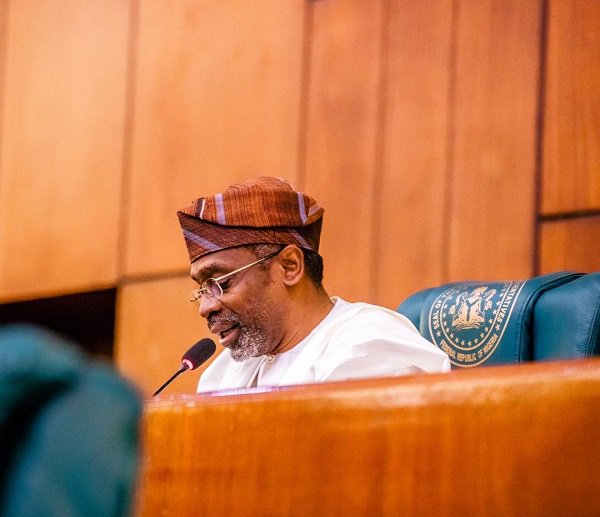The Speaker of the House of Representatives of the Nigerian National Assembly, Rt. Hon. Femi Gbajabiamila, sponsor of the Infectious Disease Control Bill, suffered shocking setback at the first public hearing on the controversial bill on Wednesday. The speaker lost grounds to notable stakeholders who opposed the bill and rejected continuation of its legislation.
The controversial bill which passed second reading by fiat in the House of Representatives on April 28, was vehemently rejected by the Nigeria Governors’ Forum (NGF), the Nigeria Labour Congress (NLC), the Trade Union Congress (TUC) and the Nigerian Medical Association (NMA) at the public hearing on Wednesday.
Governor Kayode Fayemi of Ekiti State, Chairman of the Nigeria Governors’ Forum (NGF), cited section 36 which he protested usurped the powers of governors to intervene in the control of infectious disease outbreak in their states.
The NGF chairman also cited some other sections of the bill which constitute breaches of the fundamental rights of Nigerian citizens. The governor said too much powers are concentrated on the Director-General of the Nigeria Centre for Disease Control (NCDC).
Fayemi pointed out that the coercive test and compelling the victim to bear the cost or sanctions will be imposed is highly autocratic. He also noted that the discretional powers to enter and confiscate property by the DG of NCDC on mere suspicion, or the arrest without warrant, constitute arbitrary powers.
Fayemi had declared at the Wednesday public hearing in Abuja which proceedings were monitored from Lagos: “The public should have an opportunity to participate in the formulation of policies and laws and implementation should be open and clear to promote public trust which is crucial for preventing infection spread.
“Rights of individuals to contest an order or proceeding should be protected as much as possible.
“In cases of considerable economic losses as a result of the imposition of such measures, international recommendations proffer that fair compensation be provided to those individuals.
“Any intervention seeking to provide a comprehensive legal and policy framework to ensure the effective management of cases involving infectious diseases…must be conducted within the context of the federation, carrying every stakeholder along and holding extensive consultations.
“The NGF is concerned that the governors were not consulted in putting the Bill together, neither was any role created for them, in utter disregard for their constitutional functions.”
National President of the Nigeria Labour Congress (NLC), Comrade Wabba, identified 17 grey areas that are undemocratic and dictatorial.
Wabba had declared inter alia: “Having read through the Bill, the only reinforcing and overwhelming voice is that of dictatorship.
Wabba had declared: “In presenting this memorandum, we choose to uphold our concern that the claim of commitment to the protection of public health and safety does not turn out to be an excuse for the provision of a tool in the hand of an autocrat, empowered to ride roughshod over the fundamental rights of the Nigerian People.”
President of the Nigerian Medical Association (NMA), Prof. Innocent Ujah, condemned the powers for compulsory treatment or vaccination in the bill. He declared that it is against the ethics of medical profession, as well as infringes on the right to privacy and other freedoms.
Embattled Speaker Gbajabiamila in his desperation to enforce the passage of the controversial and unpopular bill had argued that the oppositions to the proposed bill are coming from the viewpoints that the legislation “has been ill-informed and outrightly malicious”. He is yet to show willingness to abide by the populist views which have pointed out overwhelming dangers of the legislation.
The public hearing on the controversial Infectious Diseases Control Bill which is being initiated to repeal the Quarantine Act of 1926, the Nigeria National Health Act (2004), National Programme on Immunisation Act (2004) and the Environmental Health Officers (Registration ETC) of 2002, continues on Tuesday.
The Director-General of NCDC, Dr. Chikwe Ihekweazu, may make an appearance on Thursday to make a presentation on the Bill.

 Health5 days ago
Health5 days ago
 Entertainment7 days ago
Entertainment7 days ago
 Crime6 days ago
Crime6 days ago
 Education1 week ago
Education1 week ago
 Health1 week ago
Health1 week ago
 Comments and Issues6 days ago
Comments and Issues6 days ago
 Football7 days ago
Football7 days ago
 Latest6 days ago
Latest6 days ago

